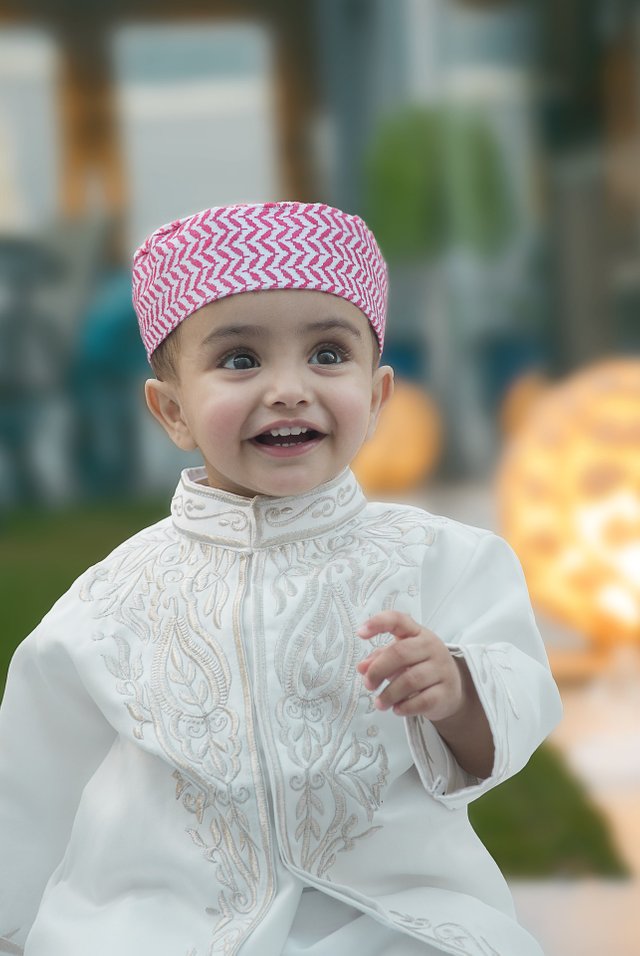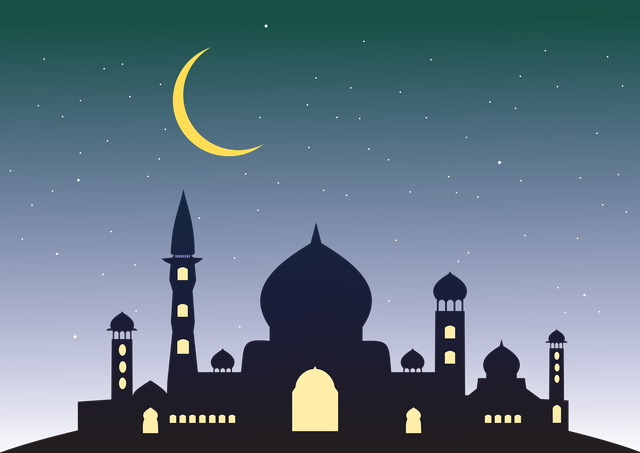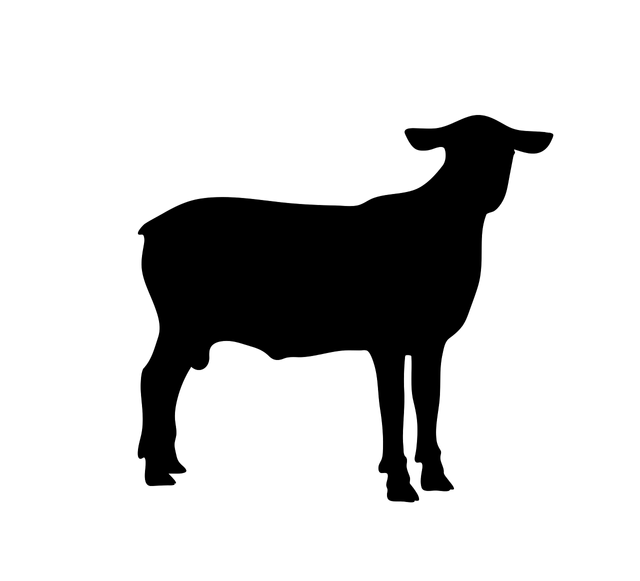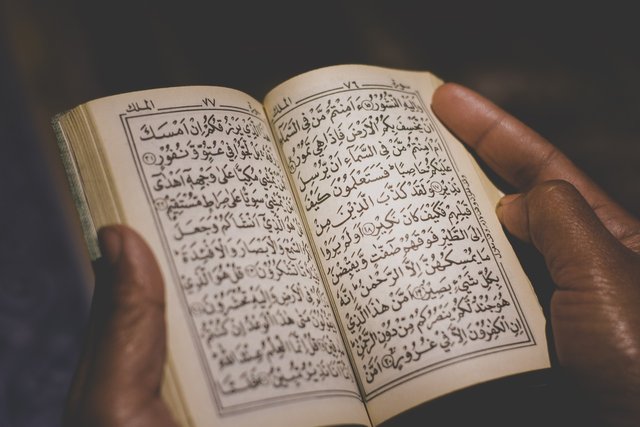Eid is a religious festival celebrated by Muslims all over the world. There are two major and the most important festivals in Islam are Eid al-Fitr and Eid al-Adha.
 {Source:https://pixabay.com/photos/kids-eid-mubarak-muslim-cute-kid-4263581/}
{Source:https://pixabay.com/photos/kids-eid-mubarak-muslim-cute-kid-4263581/}
Eid al-Fitr: This festival marks the end of the Islamic holy month of Ramadan, during which Muslims fast from dawn until sunset. It is a joyous celebration that lasts for three days. Muslims gather for special prayers in mosques, exchange gifts, give charity to the poor and needy, and enjoy festive meals with family and friends. It is a time of gratitude, forgiveness, and strengthening of community bonds.
Eid al-Adha: Also known as the Festival of Sacrifice, Eid al-Adha commemorates the willingness of the Prophet Ibrahim (Abraham) to sacrifice his son as an act of obedience to God. However, God intervened and provided a ram as a substitute for the sacrifice. It is celebrated for four days and involves various rituals. Muslims who are financially able perform the ritual animal sacrifice, known as Qurbani, and distribute the meat among family, friends, and the less fortunate. The festival is a time for reflection on the importance of sacrifice, devotion, and submission to God's will.
Apart from these two major festivals, there are other significant occasions in the Islamic calendar, such as:
The Islamic New Year (Hijri New Year): It marks the beginning of the Islamic lunar calendar year.
The Prophet Muhammad's Birthday (Eid Milad-un-Nabi or Mawlid al-Nabi): It commemorates the birth of the Prophet Muhammad. The celebration varies across different regions and cultures.
While these festivals hold great importance in Islam, it is important to note that practices and celebrations may vary among different Muslim communities and cultures around the world.
Ramzan, also known as Ramadan, is not a festival but rather a month of fasting and spiritual reflection observed by Muslims worldwide. It is considered one of the holiest months in the Islamic calendar.
 {source:https://pixabay.com/illustrations/mosque-religion-islam-islamic-5129660/}
{source:https://pixabay.com/illustrations/mosque-religion-islam-islamic-5129660/}
During Ramadan, Muslims abstain from eating, drinking, and other physical needs from dawn until sunset. The fast is observed as an act of worship and self-discipline, aiming to purify the soul, increase self-control, and empathize with those who are less fortunate. The fast is broken each day with a meal called Iftar, usually shared with family and friends.
Ramadan is a time of increased devotion and spiritual reflection. Muslims engage in extra prayers, recitation of the Quran, acts of charity, and strive to improve their character and relationship with God. The month is seen as an opportunity for self-reflection, self-improvement, and seeking forgiveness.
At the end of Ramadan, Muslims celebrate Eid al-Fitr, the Festival of Breaking the Fast, as a joyful and festive occasion. It marks the successful completion of the month of fasting and is a time for Muslims to come together, share meals, exchange gifts, and express gratitude for the blessings received.
While Ramzan or Ramadan is not considered a festival in the traditional sense, it holds immense significance and is observed with great enthusiasm and devotion by Muslims worldwide.
Iftar is the meal that Muslims have to break their fast at sunset during the holy month of Ramadan. It is an Arabic word that literally means "breakfast" or "breaking the fast."
During Ramadan, Muslims fast from dawn until sunset, abstaining from eating, drinking, and other physical needs. Iftar is the meal that is consumed to break the fast after sunset prayer (Maghrib). It is an important moment of the day for Muslims, as it signifies the end of the day's fasting and allows them to replenish their bodies with food and drink.
Muslims traditionally break their fast with dates and water, following the example of the Prophet Muhammad. This is known as "sunnah." After that, they proceed to have a complete meal that typically includes a variety of dishes, fruits, and drinks. The specific foods and dishes served for iftar vary depending on cultural traditions and regional cuisine.
Iftar is often a communal event, with family and friends gathering together to share the meal. Mosques and community centers also organize iftar gatherings, where people come together to break their fast as a community.
Iftar holds great significance during Ramadan as it allows Muslims to physically and spiritually nourish themselves after a day of fasting, while also providing an opportunity for community and gratitude.
Muslims celebrate Eid ul-Adha to commemorate the willingness of the Prophet Ibrahim (Abraham) to sacrifice his son as an act of obedience to God. The story of Ibrahim's willingness to sacrifice his son is mentioned in the Quran and holds great significance in Islamic tradition.
According to the Islamic narrative, Ibrahim had a dream in which he was commanded by God to sacrifice his beloved son, Ismail (Ishmael). Ibrahim, being a deeply devoted and obedient servant of God, prepared to fulfill this command. As Ibrahim and Ismail were ready for the sacrifice, God intervened and provided a ram as a substitute sacrifice, symbolizing the ultimate act of faith and submission.
 {source:https://pixabay.com/vectors/sheep-animal-standing-farm-lamb-2672670/}
{source:https://pixabay.com/vectors/sheep-animal-standing-farm-lamb-2672670/}
Eid ul-Adha, also known as the Festival of Sacrifice, is observed annually to commemorate this act of obedience and devotion. The festival falls on the 10th day of the Islamic month of Dhul Hijjah, which is the last month of the Islamic lunar calendar.
During Eid ul-Adha, Muslims who are financially able are encouraged to perform the ritual animal sacrifice, known as Qurbani. The sacrifice is typically a sheep, goat, cow, or camel. The meat of the sacrificed animal is divided into three parts: one-third is retained by the person performing the sacrifice, one-third is shared with family and friends, and one-third is distributed to the less fortunate, including the poor and needy.
Eid ul-Adha is a time for Muslims to reflect on the values of sacrifice, obedience, and faith. It is also an occasion to strengthen family and community bonds, engage in acts of charity, and express gratitude for the blessings bestowed by God.
During Eid ul-Adha, Muslims perform a ritual animal sacrifice known as Qurbani or Udhiyah. Qurbani is an important religious practice that commemorates the willingness of the Prophet Ibrahim (Abraham) to sacrifice his son as an act of obedience to God, as mentioned earlier.
The act of Qurbani involves sacrificing an animal, such as a sheep, goat, cow, or camel, following specific guidelines and conditions. The sacrificed animal should meet certain age and health requirements, and it is preferred to be in good condition. The Qurbani is usually performed on the 10th, 11th, or 12th day of the Islamic month of Dhul Hijjah, following the Eid prayer.
The meat from the sacrificed animal is divided into three parts. One-third of the meat is given to the person or family performing the Qurbani, one-third is shared with relatives and friends, and one-third is distributed among the less fortunate and those in need. This distribution ensures that the act of Qurbani not only symbolizes sacrifice and devotion but also promotes charity and sharing with others.
The practice of Qurbani is considered a significant act of worship during Eid ul-Adha. It serves as a reminder of the importance of sacrifice, generosity, and helping those in need, following the example of Prophet Ibrahim's devotion to God.
Certainly! Here are a few more details about the Qurbani ritual during Eid ul-Adha:
Intention: Before performing the Qurbani, it is important to have a clear intention and sincerity of heart, dedicating the sacrifice to Allah (God) alone.
Types of Animals: The animals commonly used for Qurbani are sheep or goats, but larger animals like cows or camels can also be used. The specific type of animal chosen may vary based on personal preference, availability, and regional traditions.
Method of Sacrifice: The animal is sacrificed by a trained individual, typically a butcher, who performs the ritual slaughter following Islamic guidelines. The slaughter should be done with a sharp knife, swiftly severing the throat, ensuring a humane and swift death for the animal. The name of Allah is pronounced at the time of slaughter.
Distribution of Meat: As mentioned earlier, the meat from the sacrificed animal is divided into three parts. One-third is kept for the person or family performing the sacrifice, one-third is shared with relatives and friends, and one-third is given to the less fortunate, including the poor and needy.
Importance of Charity: One of the key aspects of Qurbani is the emphasis on charity and sharing with others. It allows individuals and communities to demonstrate compassion, empathy, and generosity by providing food to those in need. This act aligns with the Islamic principles of caring for the less fortunate and fostering social solidarity.
It is important to note that Qurbani is not obligatory for every Muslim but is highly recommended for those who are financially capable. Muslims who are unable to perform the Qurbani themselves can contribute to organizations or charities that carry out the sacrifice and distribute the meat to the needy in various parts of the world.
The practice of Qurbani during Eid ul-Adha symbolizes the values of sacrifice, devotion, gratitude, and charity. It serves as a reminder of the profound faith and submission to God exemplified by Prophet Ibrahim and encourages Muslims to reflect on these values in their own lives.
 {source:https://pixabay.com/photos/quran-ramadhan-muslim-islamic-4178664/}
{source:https://pixabay.com/photos/quran-ramadhan-muslim-islamic-4178664/}
In conclusion, Muslim festivals hold deep religious and cultural significance within the Islamic faith. The two major festivals celebrated by Muslims are Eid al-Fitr and Eid al-Adha.
Eid al-Fitr marks the end of the month-long fasting period of Ramadan, during which Muslims engage in fasting, prayer, self-reflection, and acts of charity. This festival is a time of joy, gratitude, and celebration, where Muslims come together with family and friends to share meals, exchange gifts, and strengthen their bonds of community.
Eid al-Adha commemorates the willingness of Prophet Ibrahim to sacrifice his son as an act of obedience to God. Muslims observe this festival by performing Qurbani, the ritual animal sacrifice, and distributing the meat to family, friends, and those in need. This occasion serves as a reminder of sacrifice, devotion, and charity, emphasizing the values of faith and compassion.
In addition to these main festivals, there are other significant occasions such as the Islamic New Year and the Prophet Muhammad's Birthday, which hold importance in various Muslim communities around the world.
Muslim festivals provide opportunities for Muslims to express their faith, strengthen their spiritual connections, and foster a sense of unity and compassion within their communities. These celebrations reflect the core principles of Islam, including worship, gratitude, generosity, and devotion to God.
It is important to note that while the essence and rituals of these festivals remain consistent, their specific customs and practices may vary across different cultures and regions within the global Muslim community.
The mostly data is taken from ChatGPT. please read our community rules and share the creative and own quality content with us. otherwise your post will not select for curation.
Downvoting a post can decrease pending rewards and make it less visible. Common reasons:
Submit